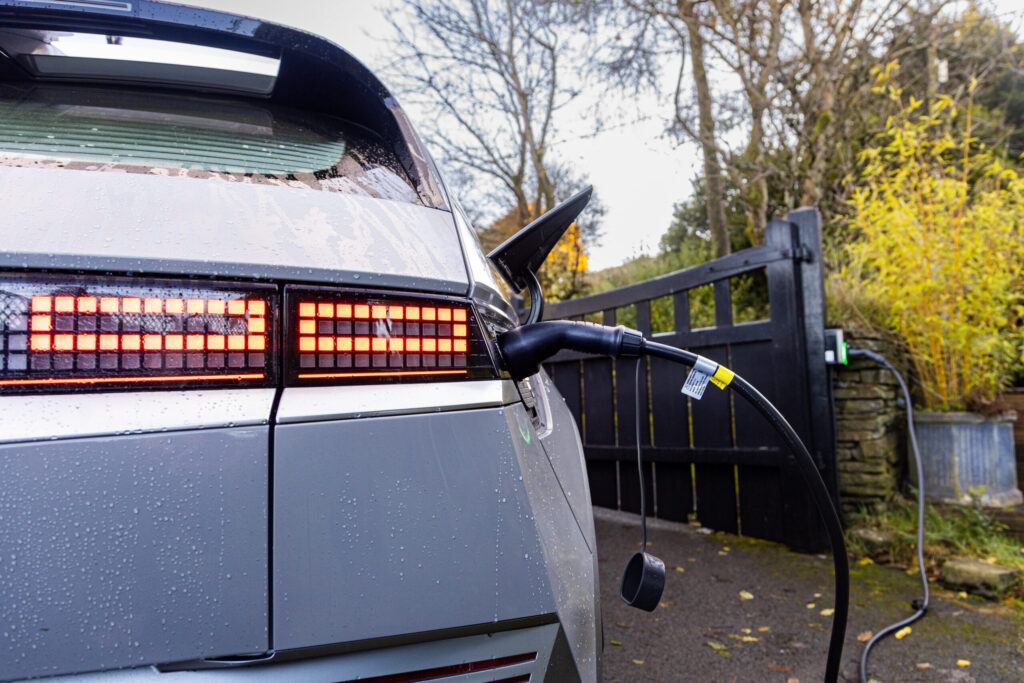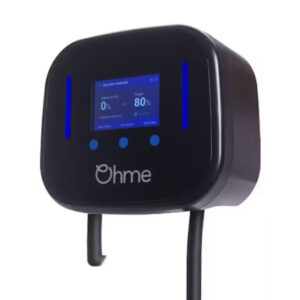As a director of an electric car charger installation company, it was time to get an EV…
My trusty petrol Hyundai Tucson had come to end of its lease, and I couldn’t go middle ground with a Hybrid, I had to practice what I preach and go straight to full electric.
To be honest as a business owner and company vehicle driver, from a financial perspective it was a no brainer, as when you consider fuel, maintenance, business tax and personal tax (benefit in kind) it’s cheaper for me and my fleet drivers to have electric vehicles.
So, let’s do the economics based on the Hyundai Ioniq 5 against my previous Tucson.
Including lease, fuel, maintenance, personal tax (benefit in kind) the Tucson was costing circa £650 a month.
After the write down against corporation tax, and including all other costs based on the same mileage, the Ioniq 5 works out at circa £400 a month, a saving of £250 a month or £3,000 a year.
On Sunday, the family went to see our eldest, who’s at Lancaster University. The plan was to pick him up and travel on to Morecambe for sea air and a walk on the promenade.
It was about a 100-mile round trip, so was an ideal opportunity to evaluate and measure the Ioniq 5.
Although it’s got an official 300-mile range, due to it being freezing and having the heater on, this dropped to 220 miles with a full battery. But this is still ample.
Whilst in Lancaster we stopped at a Booths supermarket for sandwiches. Whilst the rest went in, I took the opportunity to evaluate their Instavolt 50kW rapid charger. Costs were 40p a kW, which means our 100-mile round trip would cost £10.90 if I always used these chargers to charge.
Then on the way back we stopped at Lancaster services for a toilet stop. Curious, I again took time out to evaluate the Gridserve 50kW rapid chargers installed here. And I was surprised, as they were much cheaper than at Booth’s, at 30p a kW, and our trip using these chargers would cost £8.18.
Once home, I just had to work out both the cost of fuel in the old Tuscon, and the cost of charging at home on our night-time charging tariff through Octopus energy.
It’ll be no surprise to you, that the Tucson was the most expensive, with the trip costing £17.00.
But what was amazing was the price of home charging using the special night EV charging rates of just 5p a kW.
The total round trip had cost just £1.36, with a full battery costing just £3.00.
Amazingly, in warmer weather when we get the 300 miles, the same trip would cost only £1.00.
Proving the cheapest way (by far) to charge an electric vehicle, is to get a charge point fitted at home and choose an energy provider with a low night charging rates specially for EV charging.
Currently there is a £350 grant available to help get a charge point fitted at home, as long as you have your own off-road parking and a qualifying vehicle at least on order.
…but you best hurry because the grant is ending in March, so get your installation booked in now.


